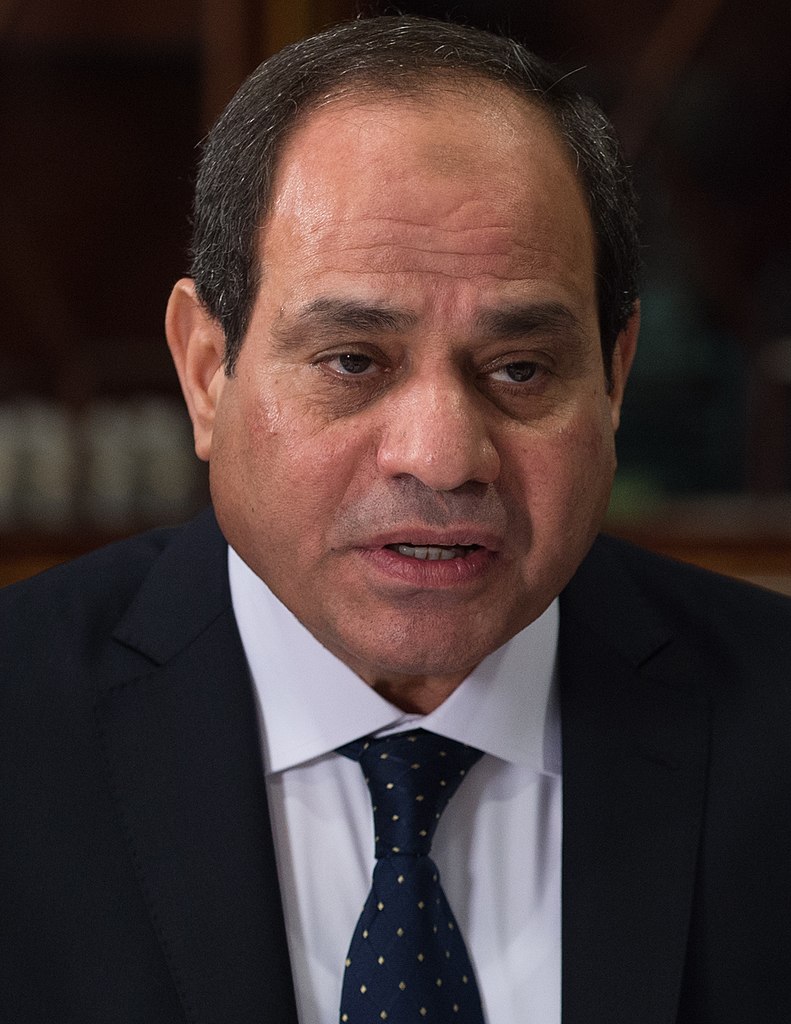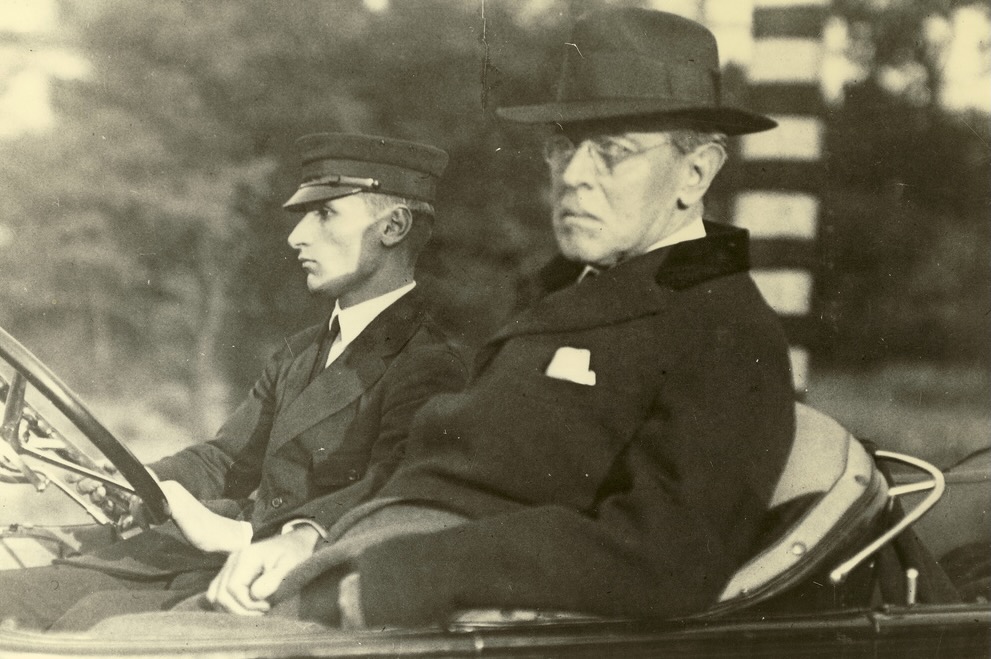Where is Woodrow when you need him?
Egyptian Knot
Perhaps one of the last non-cynical world leaders, Woodrow Wilson just couldn’t be bothered with lofty philosophical musings about the nature of government – Plato and Aristotle were lost on him. The 28th US president didn’t need the classical world to tell right from wrong. A firm believer in American exceptionalism – the naïveté of a young nation – President Wilson kept to the moral high ground from where he shaped his government (1913-1921) and determined US foreign policy.
President Wilson was determined to keep his country out of the Great War which he considered – rightfully so – the result of Europe’s corrupt politics. Even after German U-boats repeatedly torpedoed US ships, the president stuck to his neutral guns: “There is such a thing as a man being too proud to fight. There is such a thing as a nation being so right that it does not need to convince others by force that it is right.”
Only after the German Reich in early 1917 rescinded earlier promises to limit its U-boat campaign and sunk a number of American ships in rapid succession, did Woodrow Wilson reluctantly succumb to the war party led by the swashbuckling Teddy Roosevelt who had publically threatened to skin the president alive if war was not promptly declared.
“We are the sincere friends of the German people and earnestly desire to remain at peace with them. We shall not believe they are hostile to us unless or until we are obliged to believe it.” Even fighting a world war, President Wilson kept his moral rectitude. After victory was duly obtained, he insisted – to no avail – on magnanimity during the Paris Peace Conference.
The US president saw his initial impressions of Europe and its corrupt politics reaffirmed in the resulting Treaty of Versailles which exacted vengeance on the defeated German Reich, thus laying the groundwork for future conflagration.
Shrouded in the mists of history, the lessons on diplomacy bequeathed by Woodrow Wilson stand in need of a dusting off and revaluation: the world could do with a bit more honesty and ingenuousness. Today’s skilled and slick operators have mostly poisoned the diplomatic arena pursuing advantage and opportunity without the benefit of a moral compass. The hypocrisy often boggles the mind.
Political Paralysis
Take Egypt where the West celebrates a president who grabbed power and then went on to have the electorate legitimise his leadership, claiming a staggering 96.9% of the vote. Since then, President Abdel Fattah el-Sisi has unveiled a sound economic policy aimed at delivering accelerated growth to his country’s disenfranchised millions. Investors from far and wide are flocking to Egypt to underwrite a bewildering number of large-scale projects, including a vast new capital city and an expanded Suez Canal.
While economic optimism has firmly taken hold and Egypt stands ready to embrace growth and modernity, the nation’s political life suffers from paralysis. The upcoming parliamentary elections – postponed after the Supreme Constitutional Court threw out the law regulating constituencies and now likely to take place sometime after Ramadan – are widely considered imperfect.
Both the European Union and the Carter Center have refused to dispatch monitoring missions to Egypt. Former US President Jimmy Carter ordered the closure of his centre’s Cairo office and said that “the current environment in Egypt is not conducive to genuine democratic elections and civic participation.” Mr Carter expressed hope that “Egyptian authorities will reverse recent steps that limit the rights of association and assembly and restrict the operations of Egyptian civil society groups.”

Meanwhile, the EU’s High Representative of the European Union for Foreign Affairs and Security Policy Federica Mogherini also declined to send election monitors citing human rights violations and new restrictions on the rights of peaceful assembly, association, and protest. Mrs Mogherini also pointed to the ‘systemic procedural failings’ in the trial of three Al Jazeera reporters and the wholesale meting out of death sentences against hundreds of supporters of the Muslim Brotherhood as reasons for doubting the democratic grade of the parliamentary elections.
An absurd climax was reached this Saturday when an Egyptian court sentenced former President Mohamed Morsi to death for attacks on the police after a 2011 jailbreak during the popular uprising that resulted in the ousting of then President Hosni Mubarak. Amnesty International called the verdict ‘a charade based on null and void procedures’.
Bereft of a moral compass, and armed only with a sense of pragmatism, most governments prefer to look away as the Muslim Brotherhood is not generally considered a movement worthy of consideration. As president, Mohamed Morsi may have been rather unfortunate in his handling of Egypt’s affairs and not unwilling to bend the rules to fit his vision; he did get elected to the country’s highest office with 52% of the popular vote in an election generally deemed reasonably free and fair.
Just as Mr Morsi and his followers do not seem to grasp the need to keep questions of faith out of political life, President El-Sisi’s more secular administration struggles with the concept of democracy. Ruling society as an enlightened autocrat – or a philosopher king, stretching the concept slightly – may be good for overall business; it is also sure to backfire taking the nation, as it does, back to square one.
Dead Man Walking
Rather than order Mr Morsi to become a dead man walking in a travesty of justice that may beget yet more political turmoil, the El-Sisi government could perhaps have considered a less sanguine approach. It is now up to Egypt’s friends, both in the region and beyond, to nudge the general in a direction that does not expose him to societal scorn and ridicule.
It is at this point that the world could use a modern-day Woodrow Wilson to do away with cynical pragmatism and to call a spade a spade. Whilst most in the Middle East and Europe are thrilled by the El-Sisi Administration’s bold economic moves, and applaud the president’s valiant attempts at modernising and streamlining the country’s bloated and inefficient civil service, his ill-advised political theatrics need to be called out.
President Tayyip Erdoğan of Turkey was the first to do so, taking an easy swipe at western powers on Sunday, accusing them of hypocrisy for “‘urning a blind eye on El-Sisi’s coup’ and looking on as spectators while an elected president is being led to the scaffold. Grandstanding aside, President Erdoğan certainly has a point.
While it may be extremely naïve – and wholly impractical – to enter a plea for the return of morals and honesty in both international and domestic politics, it remains the only way to ensure the long-term stability, and survival, of the polis itself: people the world over are increasingly tuning out. In the election that brought Mr El-Sisi to power in 2014, only 47% of voters could be cajoled into turning up at the polls. Most Egyptians have given up on politics.
Egypt, while singled-out here, is by no means an exception. Politicians untrue to their word, seeking to gain power by subterfuge, and skilled at providing spin for any occasion rule the day. In Europe this has resulted in a resurgence of fringe parties ready to play on people’s irrational fears. Rather than outlawing such parties, they may often be exposed for what they are: purveyors of silly ideas and harbingers of doom, and as such perhaps not entirely unlike the Muslim Brotherhood.
A swift return to the moral high ground is urgently called for in Europe, Egypt, and elsewhere. A century ago, sophisticated operators may have dismissed Woodrow Wilson as hopelessly naïve, and a dangerous romantic to boot; he did base his politics on a clear understanding of right and wrong. That knowledge made Woodrow Wilson into one of the greatest presidents ever to occupy the White House.
Cover photo: President Woodrow Wilson served two consecutive terms from 1913 to 1921.
- @ 1930 Photo by US National Archives
- © 2017 Photo by Jim Mattis


